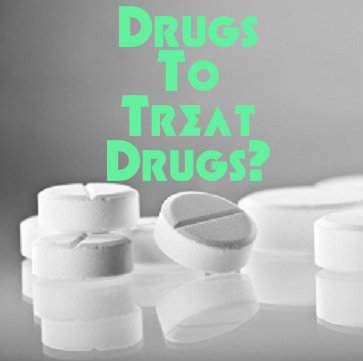Can The Medication Baclofen Help Treat Cocaine Addiction?
There are currently no fully proven medication-based options available to help people addicted to cocaine recover in treatment programs. Researchers and doctors have devoted a considerable amount of time to addressing this lack by either searching for new options or adapting existing medications to treat cocaine addiction. In a study published in April 2014 in The Journal of Neuroscience, researchers from three U.S. institutions explored the potential role of a medication called baclofen (usually prescribed to ease certain forms of severe muscle spasming) in helping recovering cocaine addicts avoid experiencing a drug relapse.
Can Medication Help Cocaine Addiction?
 Researchers across the U.S. are investigating the potential usefulness of a number of existing medications as treatments for people affected by cocaine addiction. Medications currently being studied directly in human beings include disulfiram (Antabuse), normally used in alcoholism treatment; modafinil (Provigil), typically used in the treatment of sleep apnea or narcolepsy; and topiramate (Topamax), normally used to control seizure activity and previously adapted for alcoholism treatment. The National Institute on Drug Abuse (NIDA) reports that the most consistent positive results have come from disulfiram. In addition to these adapted medications, some researchers are exploring the possibility of developing a cocaine vaccine that could prevent the drug from producing its characteristic mind-altering effects.
Researchers across the U.S. are investigating the potential usefulness of a number of existing medications as treatments for people affected by cocaine addiction. Medications currently being studied directly in human beings include disulfiram (Antabuse), normally used in alcoholism treatment; modafinil (Provigil), typically used in the treatment of sleep apnea or narcolepsy; and topiramate (Topamax), normally used to control seizure activity and previously adapted for alcoholism treatment. The National Institute on Drug Abuse (NIDA) reports that the most consistent positive results have come from disulfiram. In addition to these adapted medications, some researchers are exploring the possibility of developing a cocaine vaccine that could prevent the drug from producing its characteristic mind-altering effects.
In the absence of proven medications, most cocaine treatment programs rely on behavioral therapies that achieve their beneficial effects by helping recovering addicts change the ways in which they think and react in the presence of internal and external cues associated with drug use. Common options here include cognitive behavioral therapy (CBT) and contingency management. In CBT, people recovering from cocaine addiction learn to identify the thoughts and emotions that support drug use, then go on to learn how to replace those thoughts and emotions with alternatives that don’t support the urge to use cocaine. Contingency management promotes basic program compliance and goal setting by financially or materially rewarding recovering addicts for following program rules and reaching important treatment milestones.
What Is Baclofen?
Baclofen is a chemical relative of a substance that occurs naturally inside the brain. In the treatment of severe muscle spasms, it produces its beneficial effects by slowing down the rate of nerve cell activity in the spinal cord (which, along with the brain, forms the central nervous system). Specific ailments improved by this slowdown include multiple sclerosis and certain spinal cord problems that trigger contractions in the body’s skeletal muscles. Baclofen is widely available as a generic, unbranded medication and comes in tablet form.
Usefulness In Preventing Relapses
Current scientific evidence indicates that, even after extended periods of drug-free living, a recovering cocaine addict can experience chemical reactions in the brain that trigger drug cravings in the presence of internal or external cues previously associated with drug intake. In the face of these cravings, many people in recovery relapse back into drug use. In the study published in The Journal of Neuroscience, researchers from the University of Pennsylvania, Wake Forest University and the Veterans Administration explored the usefulness of baclofen in preventing the chemical changes in the brain that support cravings and relapse. During the study, 23 men addicted to cocaine received either doses of baclofen or a placebo designed to mimic the medication’s appearance. These men ranged in age from 18 to 55.
One week into the study, the researchers used modern scanning technology to examine the participants’ real-time changes in brain function while they viewed cocaine-related imagery at a pace too rapid to register in conscious awareness. Effectively, these rapidly presented images recreated the types of subliminal drug cues that can trigger drug intake in both active users and recovering addicts. When they compared the brain reactions of the baclofen users to the reactions of other study participants, researchers found that the baclofen users showed a substantially lower level of activity in the brain areas responsible for triggering pleasurable sensations and increasing motivation. Normally, increased activity in these areas helps drive the urge to use more drugs.
Based on their findings, the authors of the study published in The Journal of Neuroscience believe that baclofen can help block the subliminal drug-using cues that support the onset of relapse in people recovering from cocaine addiction. However, their work did not include clinical testing of the medication’s ability to prevent drug cravings and relapse in real-world conditions. They point toward a need for further research to investigate baclofen’s effectiveness in such conditions.
Find Out How Alcoholics Respond To Baclofen



